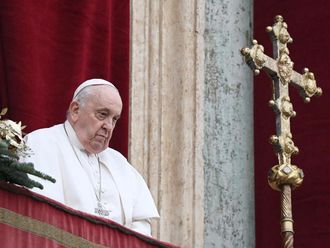London: More than 6,000 hate crimes have been reported to police in England, Wales and Northern Ireland in the wake of the referendum paving a way for the UK to exit the European Union, official figures have revealed.
There was a slight fall in reports in the first half of July compared with an initial spike in the days before and after the June 23 vote, the BBC reported citing the National Police Chief’s Council as saying on Friday.
But the overall level was up 20 per cent on the same period in July 2015. Police chiefs said the figures were “still far too high”.
There were 3,192 alleged hate crimes reported between June 16-30 this year and a further 3,001 reports between July 1-14 — equivalent to more than 200 every day, BBC reported citing the figures.
It was previously revealed that the daily rate peaked at 289 reports on June 25 — the day after the result of the referendum was announced.
Scotland Yard deputy commissioner Craig Mackey said the Brexit vote appeared to have “unleashed something in people”.
Meanwhile, leaders from the Republic of Ireland and Northern Ireland said Friday that Brexit must not mean a “hard border” being put up between the two.
At an emergency meeting of the British Irish Council in Cardiff, called to discuss the aftermath of Britain’s vote last month to leave the European Union, they said it was fundamental that border checks would not be imposed along what what would be the EU’s land frontier with the United Kingdom.
The council brings together leaders from the Republic of Ireland; Britain; its devolved administrations in Scotland, Wales and Northern Ireland; and its crown dependencies Jersey, Guernsey and the Isle of Man.
The United Kingdom, the British crown dependencies and the Republic of Ireland share a free-movement Common Travel Area (CTA) dating back to Irish independence in the 1920s.
“There are modern ways of not having hard borders,” Irish Prime Minister Enda Kenny said after the talks. “Hard borders would not be accepted in the south or the north.
“The best possible outcome for everyone is a UK that’s prosperous and has the closest possible links with the European Union. “For us in Ireland, that means access to the single market. And it’s been made perfectly clear by the EU council that if that is to happen, then the respect has to be there for the freedom of (movement of) people. We have difficulties but I expect us to retain the Common Travel Area. It’s a fundamental part of who we are.”
Northern Ireland’s First Minister Arlene Foster — who campaigned for Brexit — said a CTA would still be possible even with the UK outside the EU.
She said it was “vital” for Ireland. While a majority in Scotland, Northern Ireland and London voted for Britain to remain in the EU, a majority in nine other UK regions voted for Britain to leave in the June 23 referendum.











